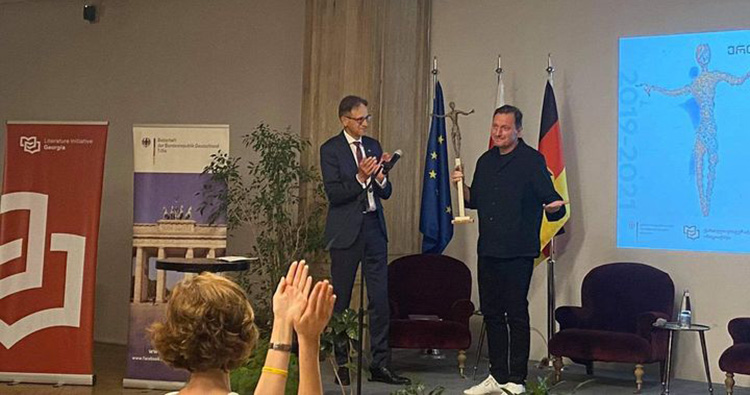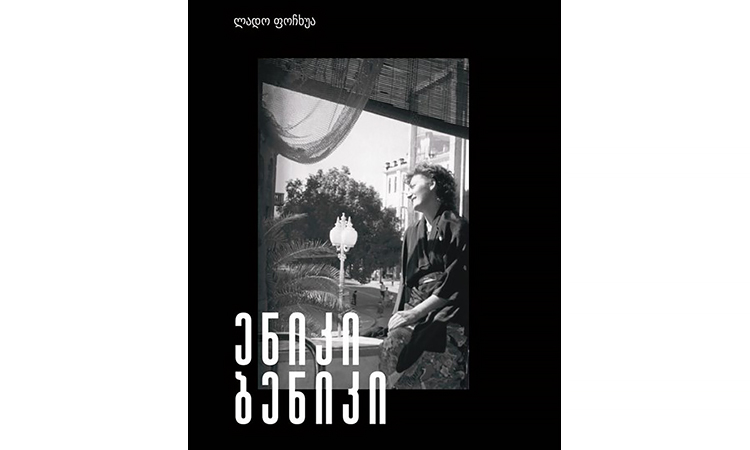Artist Lado Pochkhua wins German embassy's literary prize with debut novel

Lado Pochkhua received the prize on Wednesday, with German ambassador Hubert Knirsch and Literature Initiative Georgia director Medea Metreveli in attendance along with jury members. Photo via Georgian Publishers and Booksellers Association.
Contemporary artist Lado Pochkhua has won the literary prize The Idea of Unity by the German embassy in Georgia with his debut novel Eniki Beniki, earning the award from three finalists on Wednesday.
The prize - awarded by the embassy in cooperation with Literature Initiative Georgia - was presented to Pochkhua after the jury team singled out his work, published last year in Georgian language by Indigo, as the most distinguished of submissions around subjects of tolerance and removal of artificial barriers among people.
Eniki Beniki was picked from the shortlist that also featured Birthday by Nino Sadghobelashvili (Intelekti Publishing, 2021) and The Bunker by Iva Pezuashvili (Intelekti Publishing, 2020). The shortlist had in turn been narrowed down from a longlist of 33 works for the prize.

The cover of the novel by Pochkhua. The book was published by Indigo in 2020. Image via akti.ge.
The jury team deliberating over the submissions involved translators Maia Panjikidze and Natia Mikeladze-Bakhsoliani, historian and Literature Museum director Lasha Bakradze, author Zurab Karumidze and literary critic Zaal Andronikashvili.
Pochkhua's debut novel is based on personal memories of forced displacement from Georgia's north-western region of Abkhazia during the 1992-1993 war in the province. The book brings to readers an account of dramatic but observant moments, conveying a process of memorising views and scenes of the regional capital Sokhumi before having to leave the coastline city under siege.
A review by Tamar Babuadze of Indigo said scenes of the novel served to "clearly picture how a city abandoned decades ago can be restored, and restored only through imagination, with immediacy". The reviewer also noted Pochkhua's profile as an artist was noticeable in the literary language used for the work, with "many passages [presented as] paintings".
The 230-page book is also expected to spawn a sequel, the author has said.
 Tweet
Tweet  Share
Share